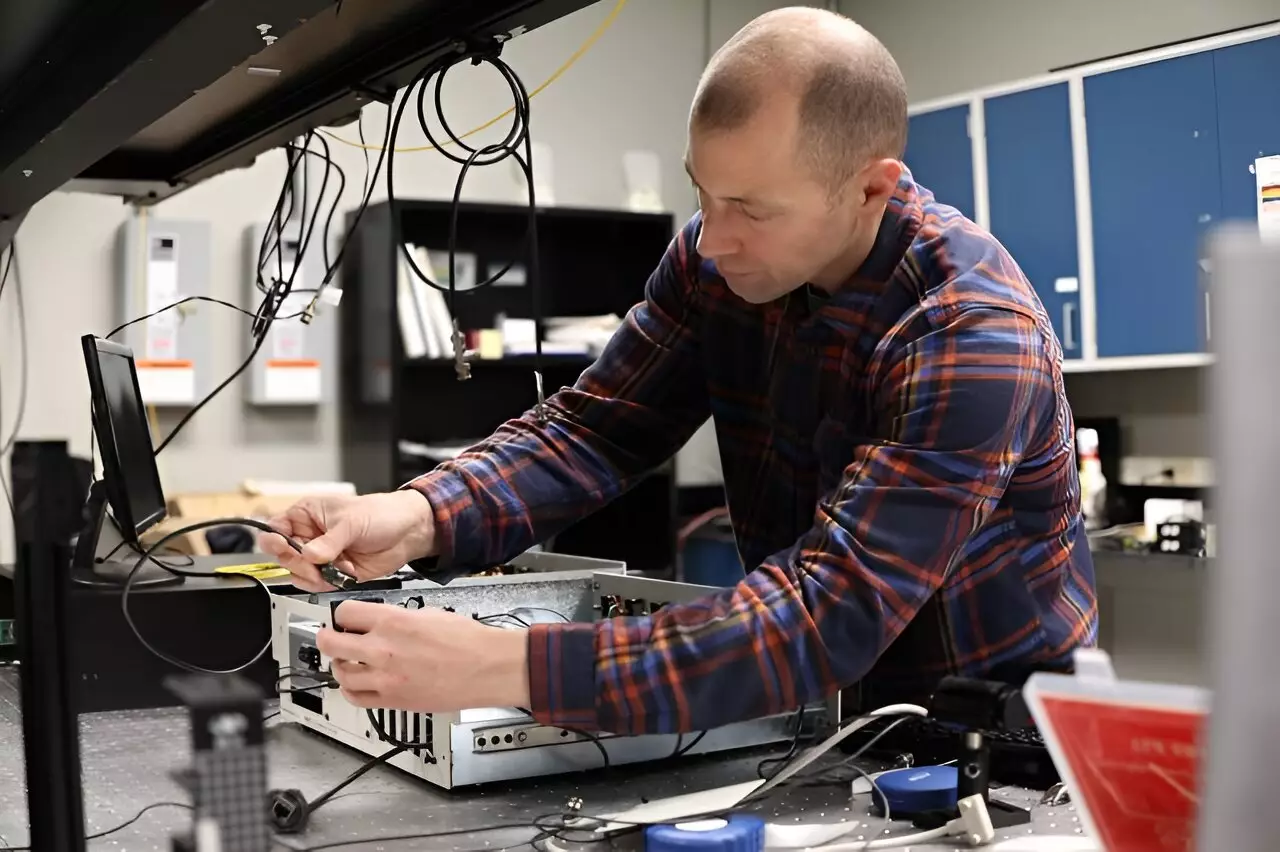

In a groundbreaking study conducted by researchers at the Department of Energy’s Oak Ridge National Laboratory, it has been shown that advanced quantum-based cybersecurity can be successfully implemented in a deployed fiber link. The results of their research, which were recently published in CLEO 2023, build upon a proof-of-principle experiment carried out by ORNL scientists back in 2015. The team achieved the transmission of a quantum signal for quantum key distribution, a secure method for sharing secret keys, utilizing a true local oscillator.
One of the key aspects of the study was the demonstration of the coexistence between quantum and conventional data signals within the same fiber-optic network. The utilization of a local oscillator helped to mitigate the effects of noise generated by other data being transmitted in the network. The transmission of the quantum signal involved encoding it in continuous variables that described the characteristics of light particles, known as photons, in terms of their amplitude and phase. This approach not only allows for a nearly infinite number of settings for distributing randomness for cybersecurity but also ensures compatibility with existing classical communication systems.
The experiment conducted by the ORNL team marked a significant advancement in the field of information security. By leveraging existing fiber-optic infrastructure, the implementation of quantum key distribution becomes more cost-effective and easier. Nicholas Peters, the head of ORNL’s Quantum Information Science Section and the principal investigator of the study, emphasized the importance of this development in enhancing security measures. Quantum key distribution involves the generation of a secure key between two parties, typically referred to as Alice and Bob. By using lasers to transmit weak optical pulses between these points, any interception or corruption of the message can be detected through measurements taken by the receiving party.
An important aspect of the new method utilized by the ORNL team is the use of interference-based measurements on the quantum signal. This involves generating optical signals using independent lasers at both transmitting and receiving points. Brian Williams, the lead author of the study and an ORNL quantum research scientist, described the process as akin to throwing rocks into a lake and observing the ripples created. The interference-based measurement focuses on detecting the part of the quantum signal that aligns with the laser, resulting in a very narrow energy resolution. This precise measurement technique is crucial for maintaining a high signal-to-noise ratio, minimizing the impact of excess noise on the distribution of the key.
Moving forward, the efforts of the research team will be concentrated on replicating the results of the experiment across a wider range of network scenarios. By expanding the application of advanced quantum-based cybersecurity to various network environments, the potential for enhanced information security and data protection can be further realized. The continuous development and refinement of quantum key distribution protocols will play a vital role in safeguarding sensitive information in an increasingly digital world.
In the realm of software development, the ability to swiftly and accurately address bugs is…
The realm of quantum computing and communication is not just an abstract dream anymore; it…
In a remarkable leap for the field of material science, a collaborative research initiative has…
Throughout Earth's vast history, our planet has endured five major mass extinction events that reshaped…
Rainfall is a vital element of our planet’s hydrological cycle, yet many aspects of its…
On a night when the universe aligns, a mesmerizing phenomenon awaits: the appearance of the…
This website uses cookies.